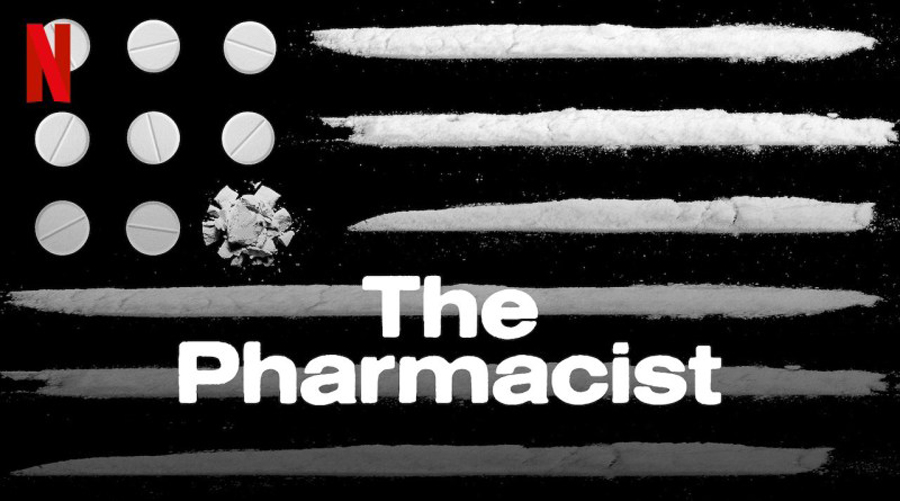Vitals JERRY H. HODGE SCHOOL OF PHARMACY
JERRY H. HODGE SCHOOL OF PHARMACY
 JERRY H. HODGE SCHOOL OF PHARMACY
JERRY H. HODGE SCHOOL OF PHARMACY
Provided by Netflix
What Did You Think of the Netflix Docuseries, ‘The Pharmacist?’
In a Facebook poll, pharmacy alumni weigh in on this true story about a pharmacist’s battle with the opioid epidemic following his son’s death.
“We loved that when he wrote to the Louisiana State Board of Pharmacy advocating for a prescription drug monitoring program, he received a prompt response and action was taken!”
— Steven Richardson, PharmD, and Eva Richardson, PharmD, (Pharmacy ’16)
“Simply put, A+ pharmacist in my eyes.”
— Justin Spence, PharmD, (Pharmacy ’17)
“I loved it! I don’t necessarily agree with how he went about it, but he actually did something.”
— Sara Robison, PharmD, (Pharmacy ’04)
“I couldn’t get past the first episode. I found it disheartening that the pharmacist essentially harassed someone into witness protection. (I acknowledge that others have said it is amazing, and I probably don’t have a full view of the docuseries because I didn’t finish it.)”
— Kristen Finical, PharmD (’11)
“I watched it. My opinion is that while I appreciate what the pharmacist was trying to do to combat the pill mill in the town where he practiced, in the end it didn’t make anything better. Many of those same people just went on to the next doctor willing to throw his or her integrity away for a quick buck.”
— Jason Salas, PharmD (’12)
“I loved it! While I don’t necessarily agree with how he went about it, he actually did something. Even stopping one ‘pill mill’ doctor is better than turning a blind eye and allowing it to continue.”
— Sara Robison, PharmD (’04)
“Steven Richardson, PharmD, (’16) and I both watched it, and, besides the title, did not feel it was very strongly tied to being a pharmacist. However, we loved that when the main character wrote to the Louisiana State Board of Pharmacy advocating for a prescription drug monitoring program, he received a prompt response and action was taken! It was a great example of the state board listening to its front-line members.”
— Eva Richardson, PharmD (’16)
“I usually don’t comment on Facebook posts. I usually just observe, but I lived through this. I had the misfortune of working for a chain of independent ‘pharmacies’ in Central Florida for about four months toward the beginning of the last decade. It was terrible. The owner was a morally bankrupt ‘pharmacist.’ He wanted to charge people different amounts per unit of oxycodone based on the zip code on their photo identification. I refused to play that game and refused to fill quite a few prescriptions because I knew they were not even possibly written for a legitimate medical purpose. Needless to say, I didn’t last long there. The last straw was a customer tried to follow me home after I refused to fill his ‘prescriptions’ (oxycodone, alprazolam, carisoprodol) and the owner taking that customer’s side.”
— Eric Pendarvis, PharmD (’05)
“Simply put, A+ pharmacist in my eyes. He put the norm to the side and went after stopping a problem facing the profession and his patients. His ways may have been unorthodox for the time, but he got things done that needed to be done!”
— Justin Spence, PharmD (’17)
“As mentioned above, I don’t agree with how the pharmacist went about it or some of the things he was doing. That being said, I think the docu-series did convey some next level/critical thinking that pharmacists often don’t get credit for in a retail setting. Should an able-bodied, young patient be filling a script for such a high dose? Should a pediatrician now be the leading pain specialist in the community? A computer can fill prescriptions, but it takes a human being using their brain power to determine if it is safe or the best therapy for the patient.”
— Jacy Malone, PharmD (’16)
“This pharmacist recognized the onset of the opioid epidemic years before widespread recognition of the problem. However, when you recognize a serious problem, the solution is usually to report it to a government agency. However, what do you do when nothing seems to be resolved? How tenacious should you be? In this case, despite extreme documentation, the Drug Enforcement Agency (DEA) was unable to stop the pill mill. Furthermore, the cops were actually guarding the pill mill! It wasn’t until the pharmacist reported the provider to the medical board that any action was taken against the provider! After years of investigation, the DEA was unable to pull the provider’s controlled substance license; however, the medical board was able to deactivate her medical license fairly quickly. The single action of reporting to the medical board was really the most important action to shutting down this physician’s unethical prescribing practices. The publicity of these cases changed the public perception that physicians were ‘untouchable’ due to their years of medical training. Now, with widespread recognition of how prescription opioids played a role in the opioid epidemic, prescription drug monitoring programs have been created and the DEA and law enforcement have more authority to investigate and shut down pill mills.”
— Merlyn Joseph, PharmD (’12)